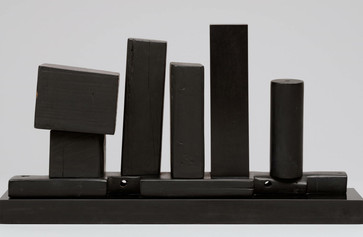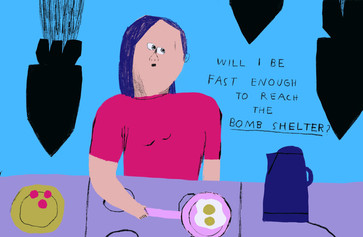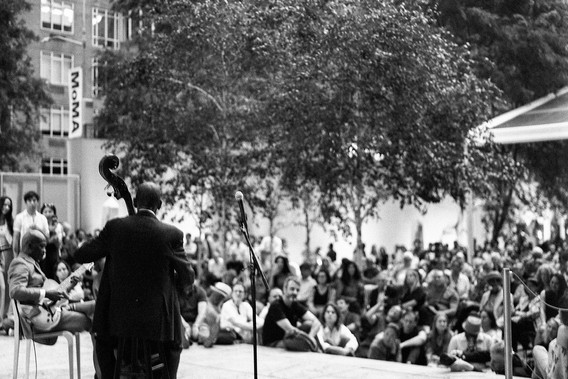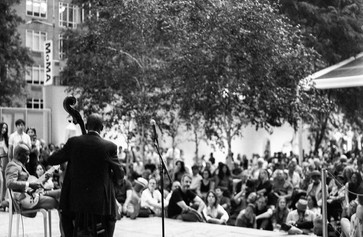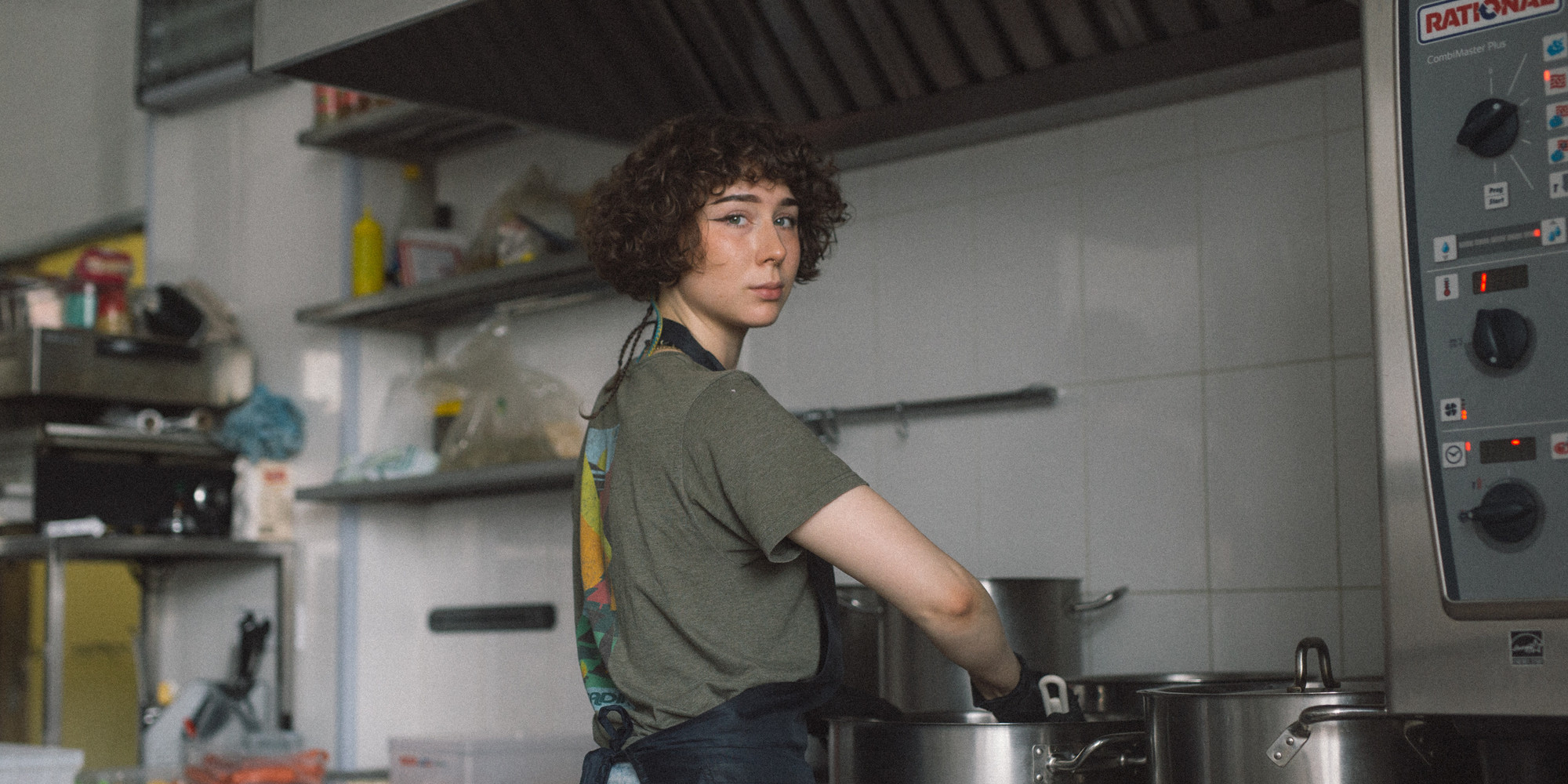
Fighting for Equality Amid War
LGBTQ+ activists discuss the risks and challenges facing Ukraine’s queer population.
Yuriy Dvizhon, Olena Shevchenko, Alex Halberstadt
Jun 23, 2022
Now in its fifth month, Russia’s invasion of Ukraine has precipitated Europe’s largest humanitarian crisis since World War II, creating reverberations felt around the world. But the war poses special risks and challenges to members of Ukraine’s LGBTQ+ community, who have had to contend not only with bombs and bullets but with Russia’s anti-gay policies and propaganda, as well as the homophobia of their own society. As part of our ongoing celebration of Pride month, I spoke via email with activists Olena Shevchenko and Yuriy Dvizhon about the situation facing queer people in Ukraine and the future of LGBTQ+ rights in that country.
—Alex Halberstadt, Senior Writer, Creative Team
Alex Halberstadt: Please tell us about yourselves and your organizations.
Olena Shevchenko: I am a chairperson of Insight, which is an LGBTQ+ organization based in Ukraine. Before the war we had 11 chapters across the country, but two have been evacuated. I am also a founder of Womens’ March (Marsch Zhinok), which is a women’s rights initiative in Ukraine.
Yuriy Dvizhon: I’m a creative director and cofounder of UKRAINEPRIDE. It is a queer movement that aims to defend and nurture Ukrainian cultural identity and share it with counterparts from different countries, ethnicities, or religions. Our first big public event happened in summer 2021 in front of President Volodymyr Zelensky’s office. I’m also a film director. I started my LGBTQ+ activism four years ago, when I came out.
What was life like for queer people in Ukraine before the war started? What were the responses to Pride marches and other public events?
OS: Before the war, Ukraine achieved a lot in terms of LGBTQ+ rights. We changed gender recognition for trans people, so it no longer requires compulsory sterilization, and the process of changing one’s legal gender has become much easier. We had many Pride events in cities across Ukraine, which were protected by the police. Of course at the same time it was still impossible to marry or form civil unions, there were no adoption rights, and the level of hate crimes towards LGBTQ+ activists and people was really high. But still we achieved a lot.
YD: Just four years ago it was common for public figures to make homophobic statements and display their intolerance. Today homophobia is no longer tolerated in society and media, and making homophobic remarks can damage your career.
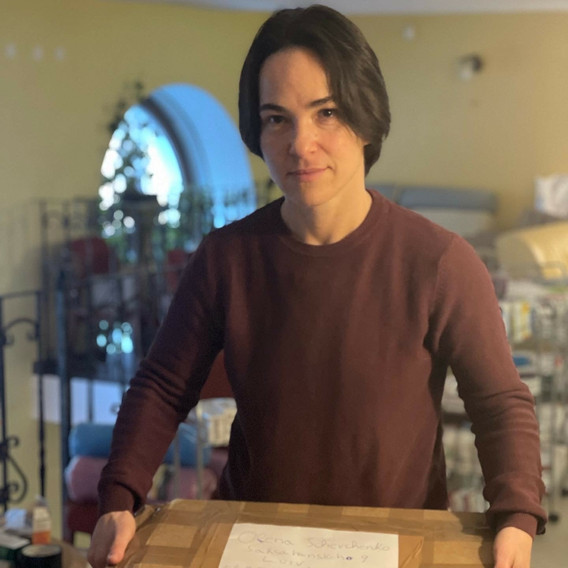
Olena Shevchenko
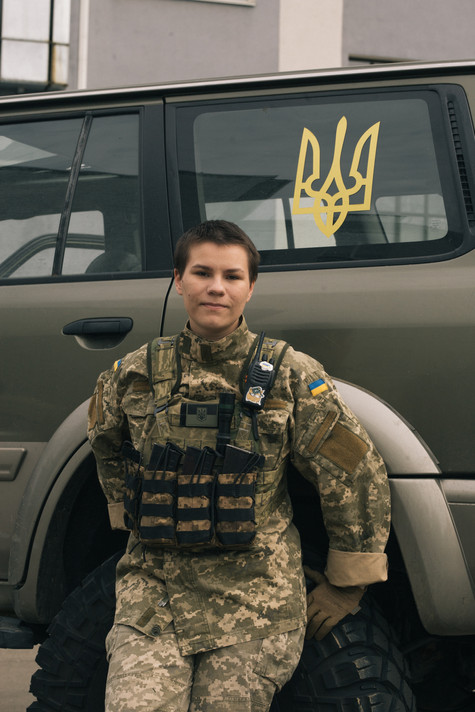
An LGBTQ+ volunteer in Kyiv
Are there different attitudes toward queer people between cities like Kyiv and Lviv and smaller communities?
YD: I was born and raised in Ternopil, a small town near Lviv, and there definitely are differences. Many LGBTQ+ people living in small towns hide their faces even on dating apps and are willing to show them only in person. Of course, LGBTQ+ members of the younger generation—between, say, 18 to 30—are gradually beginning to live more freely and aren’t as afraid of condemnation from acquaintances or relatives.
OS: The level of homophobia and transphobia is very high in Ukraine. So most LGBTQ+ people in smaller communities are closeted or trying to migrate to big cities. In cities like Lviv, in Western Ukraine, it had always been difficult to be openly queer because of the influence of religion. In Kyiv it is easier but also not entirely safe, especially if you are visually recognizable as an LGBTQ+ person or people assume that you are one.
How have members of Ukraine’s LGBTQ+ community responded to the war?
OS: LGBTQ+ people strongly oppose the Russian invasion. Many of them are now in the army, defending our country. Many have become activists doing volunteer work supporting the victims of the war, distributing the things people need to survive, and supporting the armed forces. Insight organized a team of 32 volunteers in Lviv. Every day, we pack and mail more than 150 packages containing medicine, food, and other necessities to people living under bombing and occupation. The volunteers are from Kharkiv, Irpin, Kherson, Kyiv, and elsewhere. They have lost everything but found the strength to support others.
Since the start of the war, we have helped 27,000 LGBTQ+ people in shelters in Lviv and Chernivtsi with temporary housing and other support.
Olena Shevchenko
Can you describe the dilemma of whether to stay in Ukraine or leave the country for LGBTQ+ people?
YD: There is a law that forbids men between the ages of 18 and 60 from leaving the country. There are no exceptions to this law due to sexual orientation. Personally, I believe that it’s the duty of every citizen to defend their country and bring victory closer.
OS: It’s clear that under a possible Russian occupation, LGBTQ+ people will be one of the first targets. People are afraid to lose their families. So many of those who have fled Ukraine are LGBTQ+ families with children. Some of them have lost their homes a second time, after having been internally displaced in the Donbass region after 2014. Each story is full of pain and suffering. Almost all of those who left want to come back home to Ukraine.
What are the risks a potential Russian occupation poses to Ukraine’s queer community?
OS: For LGBTQ+ people, a Russian occupation will mean death or torture. Official Russian ideology defines LGBTQ+ people as the main enemy of its concept of “traditional values.” Refugees from the Donbass region have told us awful stories about the torture, rapes, and murder of LGBTQ+ people. Many there are missing. So there’s a huge fear around occupation.
YD: Russia’s intelligence services have poured a lot of money into supporting far-right organizations that attack LGBTQ+ activists and events in Ukraine. In eastern and southern parts of the country that are occupied by Russia, not only are there no basic rights for LGBTQ+ people, but Ukrainian identity and culture are also banned: Education in schools is conducted in Russian, only Russian channels are broadcast on television, and so on.
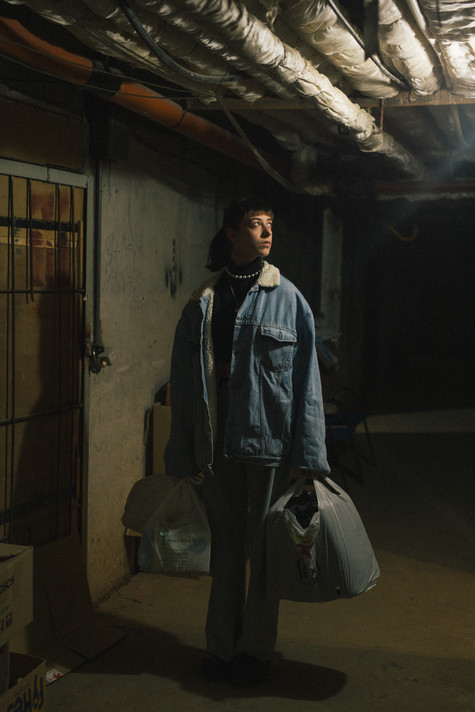
An LGBTQ+ volunteer in Kyiv
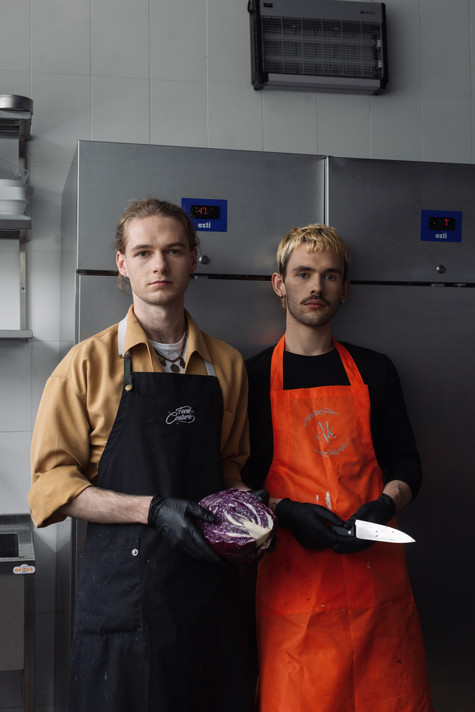
LGBTQ+ volunteers preparing food for refugees and soldiers in Kyiv
Can you speak about the specific challenges faced by LGBTQ+ people during this war?
YD: While LGBTQ+ people are defending our country, we still have to defend ourselves from the homophobic portion of our society. Like many Ukrainians, LGBTQ+ people are struggling with work, food, and medicine. Some have lost their homes and family members. So far, three queer friends have died in this war.
OS: The law requiring men aged 18 to 60 to remain in the country also affects trans people, who can’t leave because of their legal gender. Personally, I think this law needs to be revised, so trans people can be allowed to leave for safer places.
Describe your work with queer refugees.
OS: Since the start of the war, we have helped 27,000 LGBTQ+ people in shelters in Lviv and Chernivtsi with temporary housing and other support. We also helped many to travel to other countries and find friendly host families. We support queer people across Ukraine with medicine, hormones, hygiene products, and other necessities, so they can survive and take care of their families. So far, we have delivered more than 4,000 packages with humanitarian aid. In addition to this, we offer psychological and legal assistance throughout the country.
In a recent speech, President Zelensky defended LGBTQ+ people. Has the political situation for the queer community changed since the war began? And what do you foresee as its future after the war ends?
YD: Since the war began, Ukraine’s official Instagram page, maintained by the Ministry of Foreign Affairs, posts often about LGBTQ+ rights. There are posts about queer soldiers, about the Day Against Homophobia, Biphobia, and Transphobia, and so on. This is one reason why I think we are moving quickly toward Europe and the United States in terms of human rights, which must be equal for all.
I want to believe that Volodymyr Zelensky will sign major anti-discrimination legislation into law. That will once again show the world that he is a modern European president.
OS: I hope after the war LGBTQ+ people finally will get equal rights in my country, where we still don’t have legal recognition as families. It causes so many problems, especially for those who are in the army or volunteering. According to Ukrainian law, if I die, my girlfriend has no relationship to me. That is just wrong.
I want for us to be equal citizens of Ukraine. I want my society to accept us as much as it does those who happen to be heterosexual. These are basic things, but they will make so many families happy.
